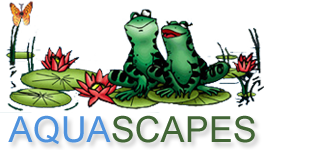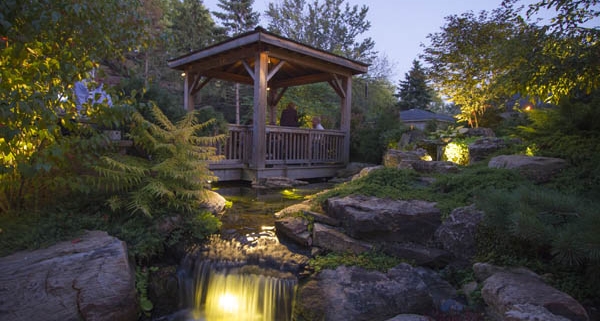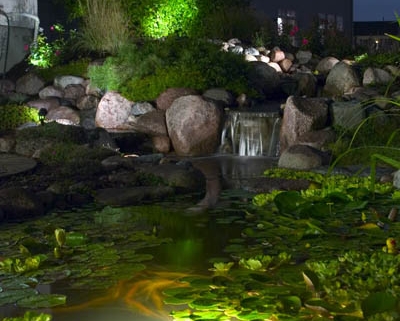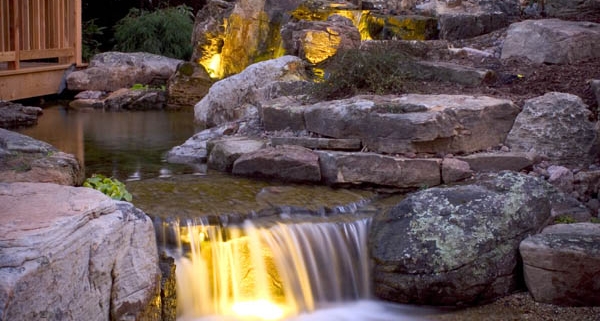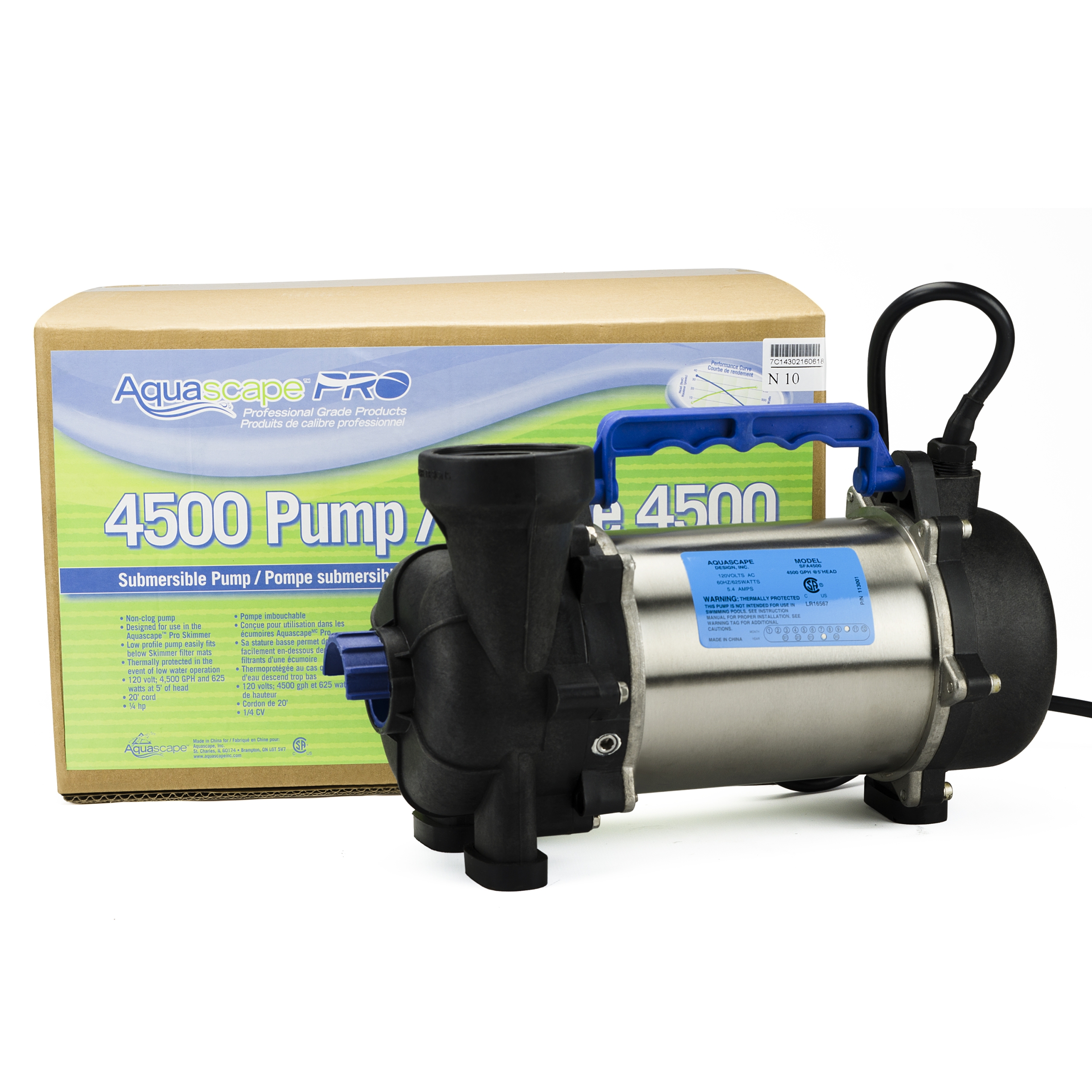When we choose a backyard pond pump, one of the important things to know it how much it will cost to operate it. Most backyard pond pumps run 24 hours daily, 7 days weekly, so the electricity costs can mount up fast. It is relatively easy to find out how much it is going to cost to run your pump.
-
For illustration purposes only. Based on $ 0.10 per Kilowatt Hour and 12 months continuous use. Your actual costs may vary depending on your cost per KWH, head height, tubing diameter and actual use.
-
Watts divided by 1000 = Kilowatts x $ 0.10 per KWH (Kilowatt Hour) x 24 hours x 365 days.
What Size Pump to Use on a 250 Gallon Pond
Unless you build your pond fresh water, such as from a stream, flows through your pond, you will need a pump to circulate water. Pumps keep water flowing, which is necessary to maintain a healthy environment for fish and water plants.A 250-gallon pond falls right in the middle of an average capacity water fixture. Pond usage, along with additional features like waterfalls and the number of fish, determine the final size of an adequate pump.
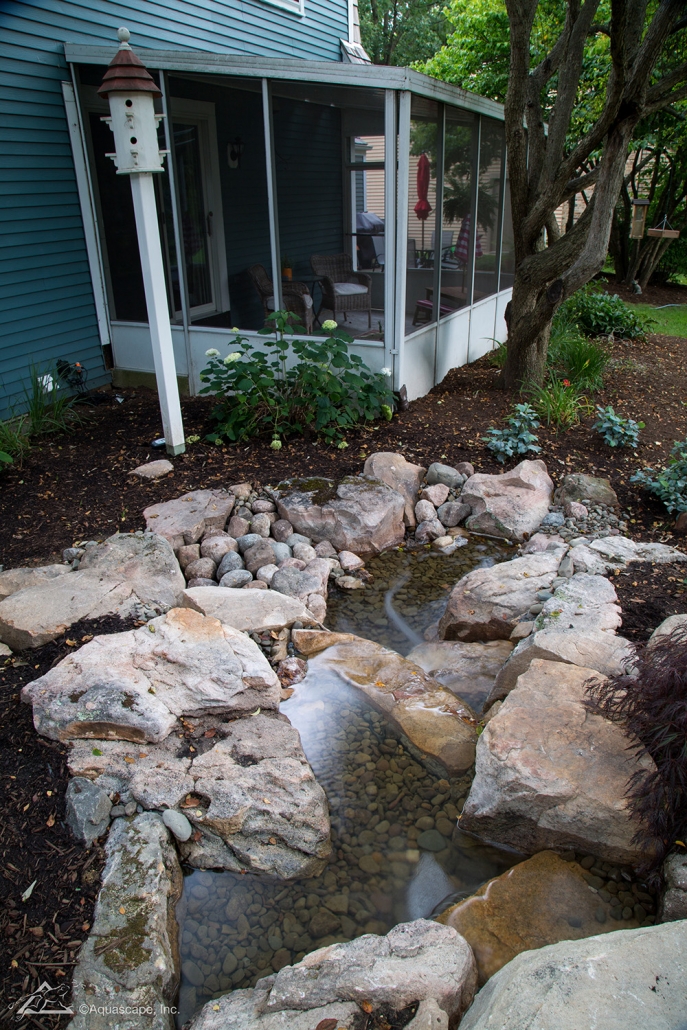
Minimum Size
Determining minimum pump size is easy. Pumps for smaller home ponds are rated on the output of gallons per hour (GPH). To determine pump size multiply GPH by 0.5. Thus, minimum pump size for a 250-gallon pond is one rated at 125 gallons per hour.
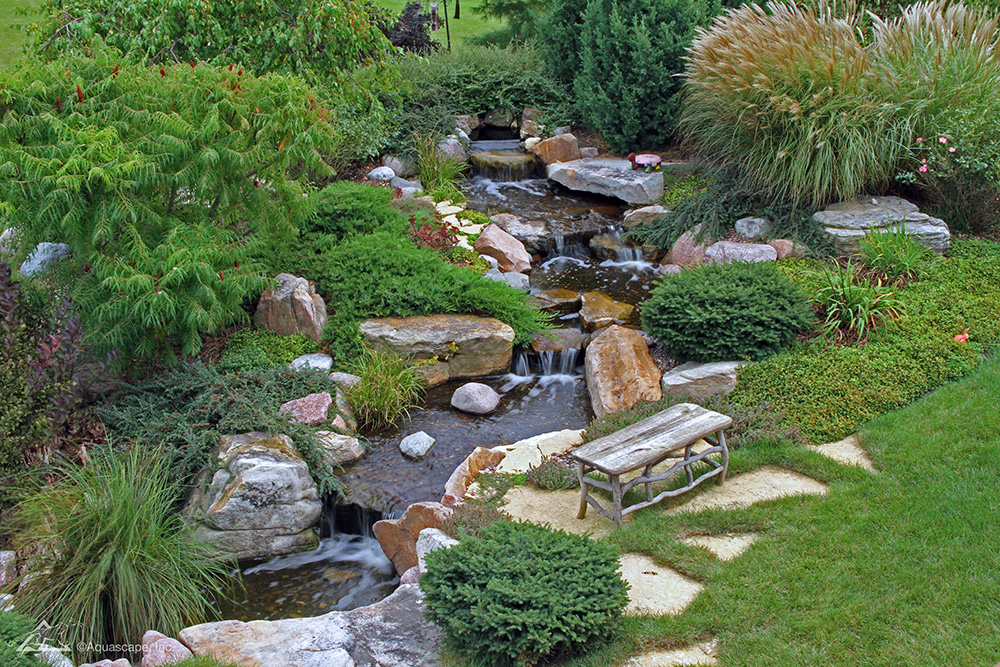
Other Factors
The water in a pond with numerous fish should circulate every hour, so you would need a pump rated at 250 gallons per hour. A waterfall increases pump size requirements, at a minimum, by 1,500 GPH per per foot. Measure the width at the top of the waterfall and multiply with 1,500 GPH. If it’s 2 feet wide at the top, add 3,000 GPH to pump size. For example, if you have a 250-gallon pond with few fish, you’re starting at 125 GPH pump, but adding the 2-foot wide waterfall to the equation brings it up to a pump size of 3,125 GHP. When looking at pumps have the height of the pond handy and look for that figure on the box. Consult manufacturer recommendations for any additional factors such as filters.
Pond pumps keep water circulating in a pond, preventing stagnant water that helps mosquitoes and algae grow. The pumps also help water flow through the pond filter if one is installed. Pumps are also essential for water features such as fountains and waterfalls that are incorporated into a pond. Using a pump that is the wrong type or of the wrong power can cause problems. So taking time to select a pump that is correct for a pond is an important part of pond establishment and maintenance.
Determine the kind of pump you want for your pond. A submersible pump is easier to conceal and requires less plumbing than other kinds but is slightly more difficult to access for maintenance. An external or centrifugal pump is simple to access but requires additional plumbing and takes up space outside a pond.
Consider the amount of pond water that needs to be moved at any given time to determine whether the task requires a 120-volt pump or a 220-volt pump. A 120-volt pump plugs into a standard electrical outlet but can move only a limited amount of water at one time. A 220-volt pump requires a special electrical outlet but is much more powerful than a 120-volt pump so can move a large amount of water at one time. A 120-volt pump is useful for circulating water within a pond and for powering a small water feature, including a small fountain. A 220-volt pump is useful for large-scale water circulation and for powering a large water feature, such as a waterfall.
Measure the width and height of each waterfall and other water features in your pond. A water feature’s width helps you determine how much water needs to move at one time, and its height reveals how far vertically the pump needs to move water.
Estimate the pond’s volume by measuring its length, width and depth. Multiply the length by the width to find the pond’s surface area. Multiply the surface area by the pond’s depth to find the pond’s volume. If the pond has a sloped or uneven bottom, then take multiple depth measurements, multiply them together and divide the resulting sum by the number of depth measurements you took; the result is the pond’s average depth, which you can multiply by the surface area to find the pond’s volume. Because the volume is needed only to determine required pump strength, it doesn’t need to be as exact as it would if you were adding chemicals or other substances to the pond.
Compare pump models’ gallons per hour (GPH) ratings. A pump’s GPH should be at least one-half of the pond’s volume to ensure proper water circulation; koi ponds, however, require a pump with a higher GPH rating.
Check the pumps’ maximum head ratings if you will use a pump to power a waterfall or other water feature. A head rating indicates the maximum height that a pump can raise water; at the maximum height, only a trickle of water is released. Choose a pump with a head rating higher than the height that you need the pump to raise water. Selecting such a pump will ensure proper water flow.
Consult the performance charts included on the pumps you consider to learn whether or not each option features the GPH and head rating your pond requires. Each performance chart shows the change in pressure and performance that a pump experiences at different heights. The information will help you determine which pump offers the best performance based on your pond’s volume and maximum height requirements.
If you keep a pond for fish, swimming or just yard ornamentation, you need to know how many gallons the pond holds. The dosage for treatments to keep fish healthy or to keep weeds and algae from overwhelming your pond may vary according to the number of gallons in your pond. You can estimate gallons by using mathematical formulas based on there being 7.48 gallons per cubic foot of water.
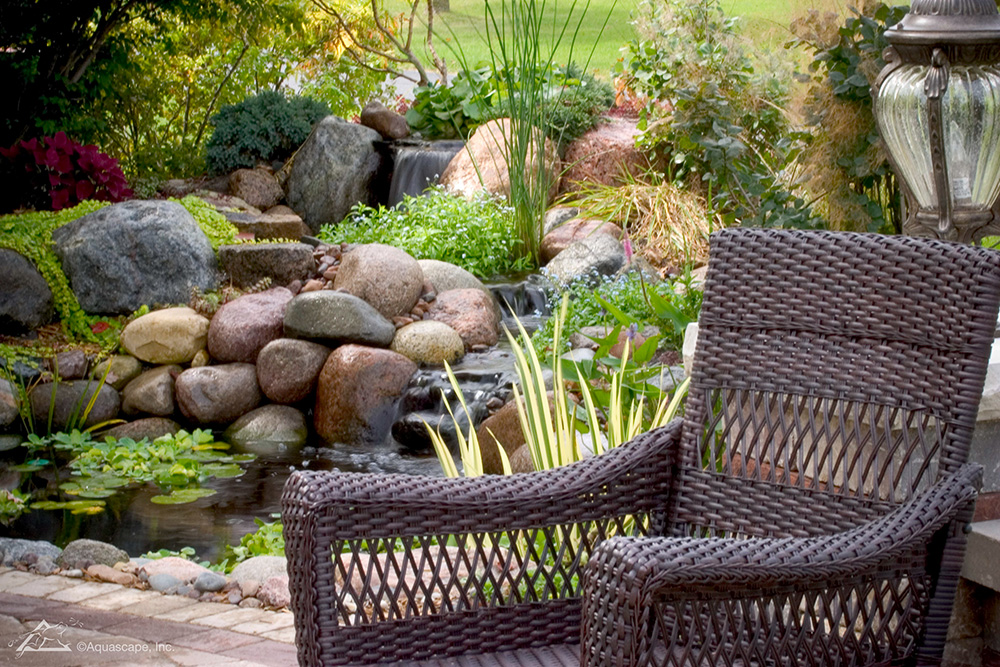
Squares and Rectangles
- Measure the length in feet and the width in feet with the tape measure, then measure the depth in feet with a dip stick if your pond is a square or rectangle.
- Multiply the length by the width by the depth to get the volume in cubic feet. For example, if your pond is 16 feet long, 8 feet wide and 4 feet deep, multiply 16 by 8 by 4 to get 512 cubic feet.
- Convert cubic feet to gallons by multiplying the cubic feet by 7.48. In this example, multiply 512 cubic feet by 7.48 to get 3,830 gallons of water in a rectangular pond.
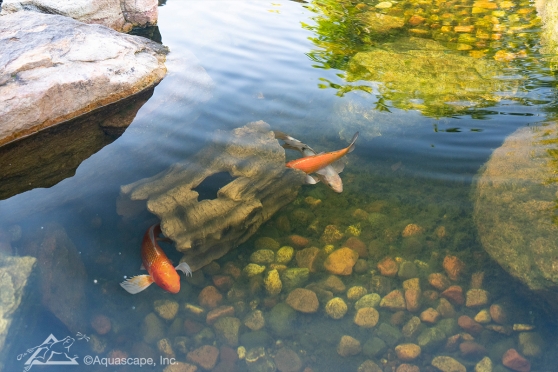
Circular Ponds
- Measure the diameter of your circular pond in feet. Divide the diameter by 2 to find the radius.
- Multiply the radius of the pond by itself and then by 3.14. Multiply this product by the depth in feet to find the cubic feet of water. A circular pond 4 feet deep and 20 feet in diameter has a radius of 10 feet. Multiply 10 feet by 10 feet by 3.14 by 4 feet to get 1,256 cubic feet.
- Multiply 1,256 cubic feet by 7.48 to calculate gallons for this circular pond. The result is 9,395 gallons.
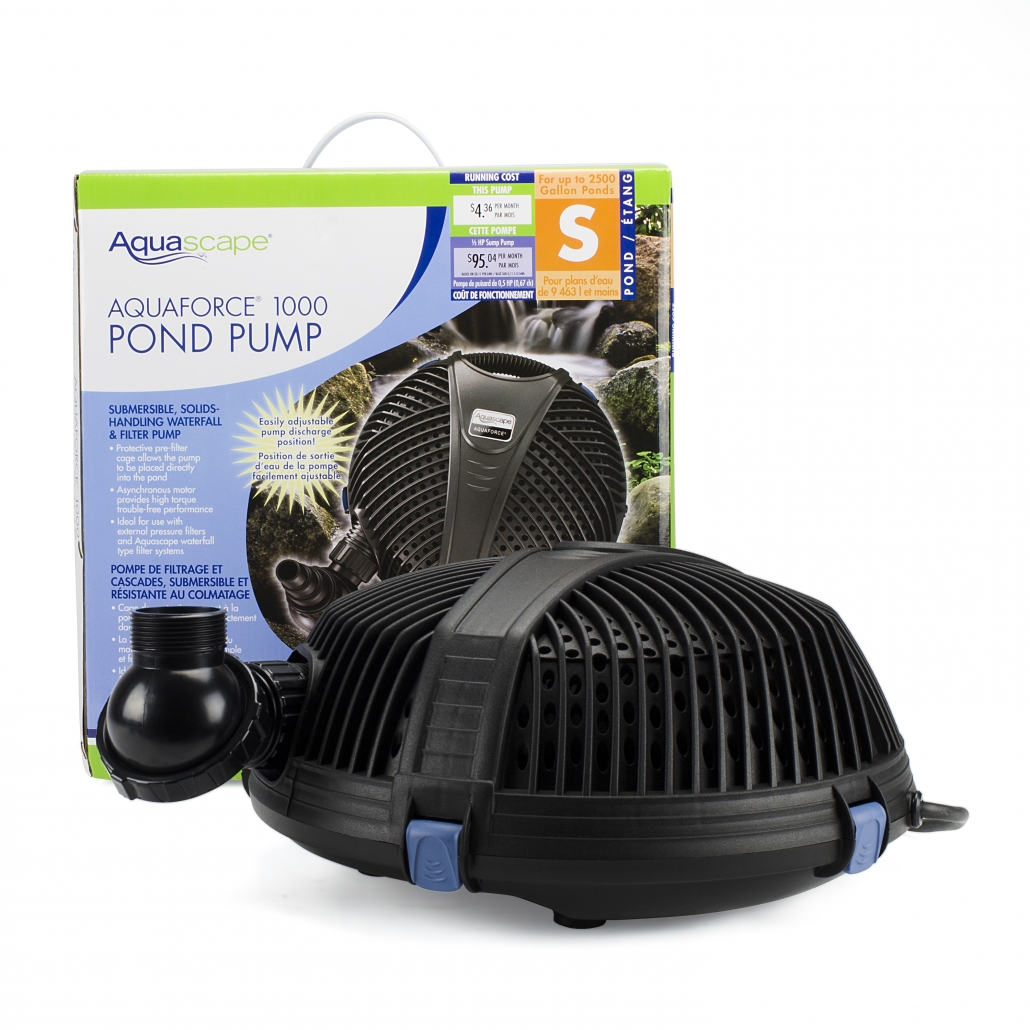
Oval Ponds
- Measure the length in feet at an oval pond’s longest point, the length in feet at the oval’s widest point and the depth in feet. Divide the length by 2 to find the radius of the length, and divide the width by 2 to find the radius of the width.
- Multiply the length radius by the width radius by 3.14 by the depth in feet. This will give you the volume in cubic feet. An oval pond that’s 4 feet deep, 20 feet long and 10 feet wide has a length radius of 10 feet and a width radius of 5 feet. You multiply 10 feet by 5 feet by 3.14 by 4 to get 628 cubic feet.
- Convert cubic feet to gallons for this oval pond. Multiply 628 by 7.48. The result is 4,697 gallons.
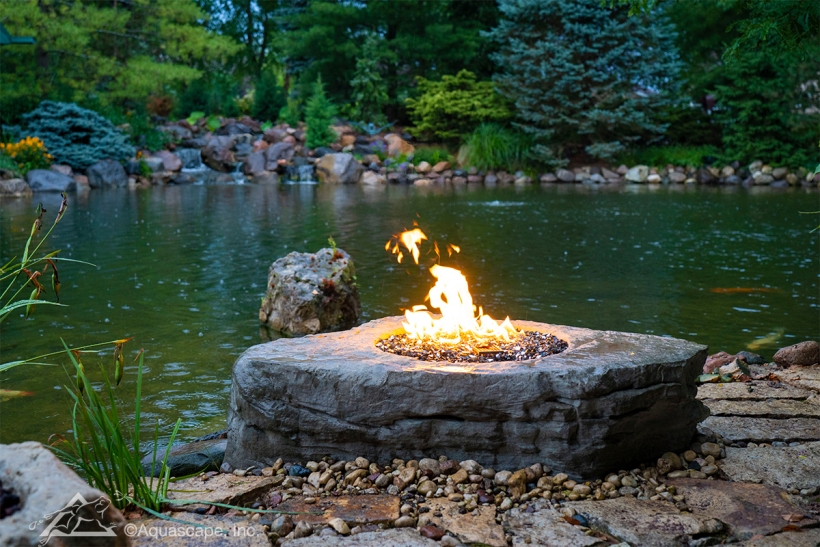
Irregular Shapes
- Measure the average length, the average width and the average depth of the pond if your pond is an irregular shape. Find the averages by measuring the longest and shortest distances along the length of the pond, the longest and shortest distances across the width of the pond and the deepest and shallowest depths.
- Average the measurements by adding the length distances and dividing the sum by the number of measurements, in this case two measurements. Add the two width distances and divide the sum by 2. Add the two depth distances and divide the sum by 2. The more measurements of length, width and depth you average out, the more accurate your gallon estimate will be.
- Find the irregular pond’s cubic feet of volume. If your pond’s length measurements were 20 feet and 10 feet, the average length is 15 feet. If the width measurements were 10 feet and 6 feet, the average width is 8 feet. If the depth measurements were 5 feet and 3 feet, the average depth is 4 feet. Multiply 15 by 8 by 4 to get 480 cubic feet.
- Convert cubic feet to gallons. For irregular ponds, use 7 gallons per cubic foot to account for small irregularities between measurement points. Multiply 480 by 7 to get 3,360 gallons.
What Kind of Pump Do I Need for a Small Fish Pond?
Needs differ between ponds that contain fish, which actively produce waste that is high in nitrogen, and ponds that contain only plants. A pump helps to keep water clear and full of oxygen, and it is necessary for a pond that has more than one or two goldfish, even if it has many plants. Buy the smallest pump you can for your small fish pond’s needs, taking into account whether or not the pump has filtration capabilities and its likelihood of damaging fish.
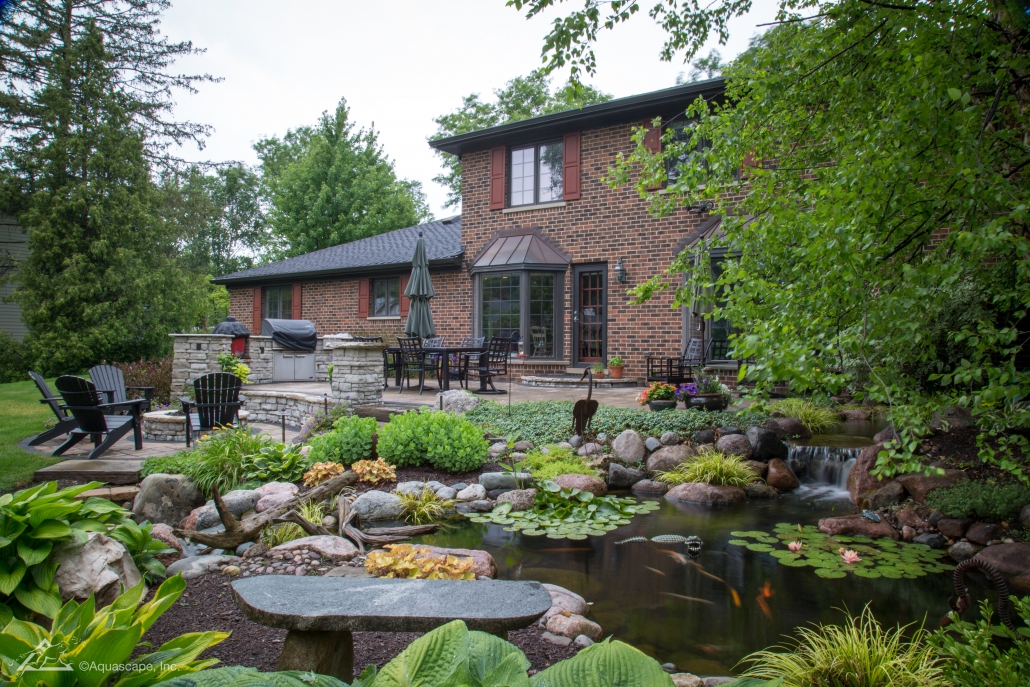
Continuous-Duty Model
Although a water garden or pond without fish can subsist well with a pump that runs intermittently, a pond with fish requires a continuous-duty pump. That pump should be designed specifically to run continuously. Other kinds of pumps may burn out after a short period, such as a few months. Use a pump powerful enough to recirculate your pond’s entire water contents every two hours.

Placement
Two main kinds of pumps exist: those that are mounted outside a pond and those that work underneath the pond water. Although the kind for under the water is more subtle and leads to a prettier effect because it isn’t visible, it is safer to use a pump that mounts above ground, outside the pond, for a fish pond. Its use avoids possible injury to fish, the delicate parts of which may be sucked into the intake portions of a pump that is in the pond water. Usually, a pump mounted outside of the pond water has piping outside the pond as well.
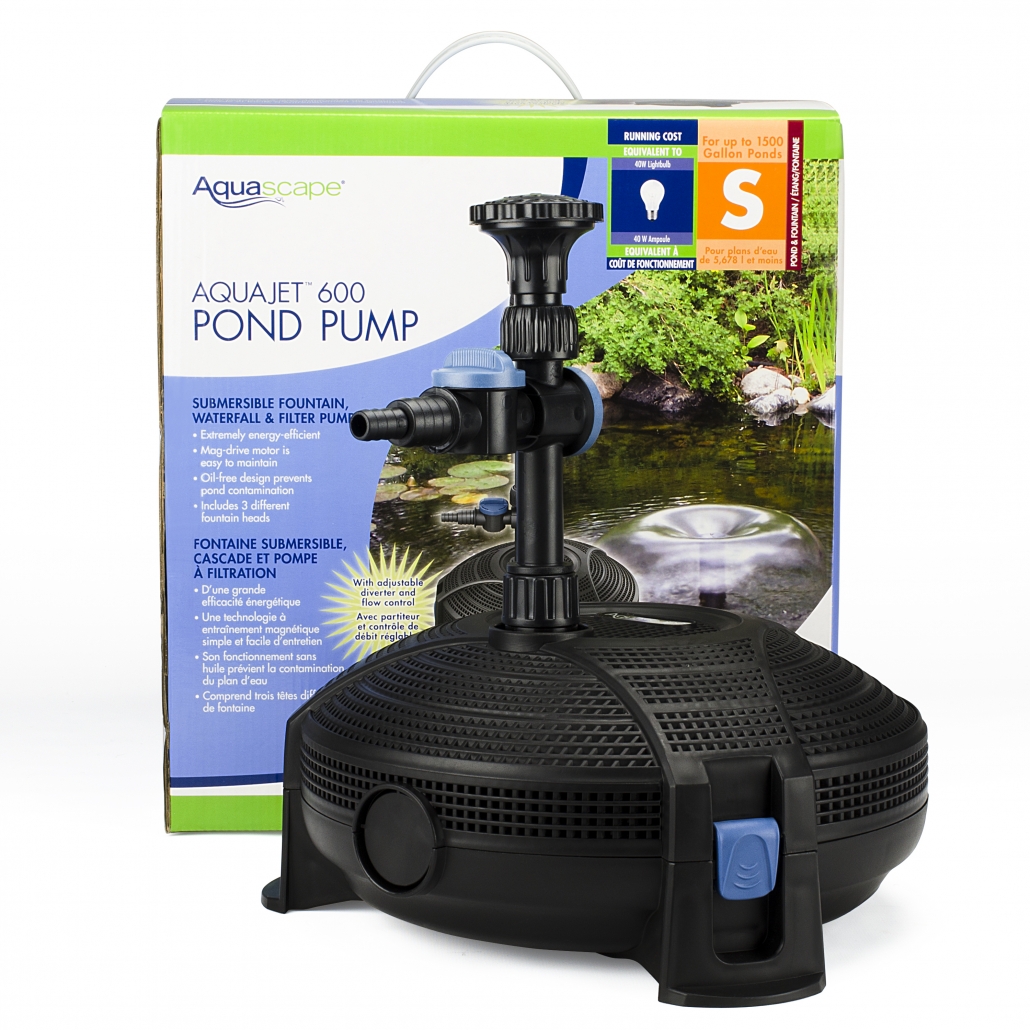
Filtration System
Pumps don’t necessarily include filtration systems. Many types just circulate the water in order to keep oxygen levels up and to provide the pleasing sound that many homeowners associate with ponds. Fish waste is high in ammonia, however; when it builds up, it can harm fish. Using a pump with a filtration system is wise, especially if your small fish pond tends to turn mucky quickly. A filter, though, can be installed separately from a pump.
Energy Efficiency
Energy efficiency is an important factor when choosing a pump for a pond with fish in it. Because the pond’s pump must run continuously, using a high-wattage pump can quickly run up your energy bill. So choose a pump with the lowest wattage that can still handle your pond’s amount of water. Take into account whether you need the pump to power extra elements such as waterfalls. Using a pump that combines filter and water circulation can decrease your energy costs compared to using a pump and filter that are separate devices.
